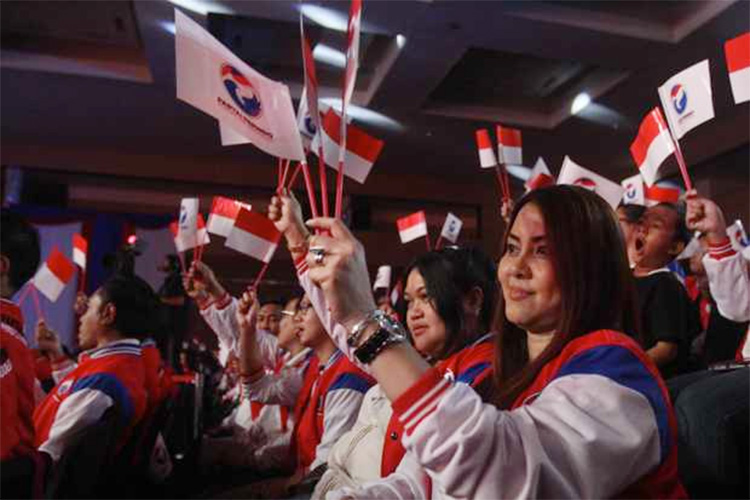Having the capital and large number of supporters, four political parties have been established this year. They are United Indonesia Party (PERINDO), the Peaceful and Benign Islam (Idaman), Indonesia Solidarity Party (PSI) and Indigenous Party (Partai Priboemi). They moved swiftly looking for public sympathy and joining the competition in 2019 election.
The formation of new political parties is normal after the end of New Order regime. After being shackled for so long in a party categorized system manufactured by the regime, reformation was the moment for political party ideology carnival to surface. Evidently, in the 1999 election there were 48 political parties as the contenders.
One real form of the opened democracy was the existence of political parties. Clinton Rossister (1960:1) said, “No America without democracy, no democracy without politics, and no politics without parties”. In line with Richards Katz (1980:1), “modern democracy is party democracy”.
Emerging parties (multi-party) is directly proportional with the growth of democratization, especially on rights equality of citizens. Along with postmodern development, specialization and differentiation of social roles are inevitable. Interests and backgrounds of people which are so diverse make them have needs and wants to fight for political policies. Group of interests and political parties are manifestation of those desires.
Multi-party system was expected to be communicative media of politics to bridge any forms of desires and interests from varied demands. The more modern the society, the more their behavioral patterns and orientation inclined to be explicitly oriented to political system as a whole, input and output and to themselves as a political actor. It usually happens to urban society which is educated and aware of its political position and role, so it can obtrude its interests to the applied political system.
Giovanni Sartori, an Italian political scientist, formulated political party system to its polarities, the distance between the polarities, and the direction of the political interactions. He divided into three models, Simple Pluralism, Moderate Pluralism and Extreme Pluralism. Referring to Sartori’s view, Indonesia has extreme pluralism system because it has many polarities or multi-party system which is distant and contradicted from one another, very polarized (left polarity: socialist, right polarity: Islam and Christian, democracy and radicalism, central polarity: nationalist), and centrifugal political activity (away from the center).
Unfortunately, happening political fact in Indonesia was not the same as predicted by Sartori. Even though there were many parties expected to create great collision as they had different ideologies, all parties existing now in fact almost similar on its ideological tendencies. Their jargon in each election relatively similar, such as people’s economy, democratic and religious. This is the complete opposite of new order regime’s categorization of ideological party. Three party diffusion had given special ideological characteristic for each party.
Pragmatic ideology happens to almost all parties worsened by the applied open election mechanism. Candidates supported affect significantly to the electability of the parties. Thus, it is a logical consequence if in every election there are popular figures who are not the cadre of the parties invited to gain votes. Celebrities, artists, athletes or anyone with popularity can be recommended by parties to advance as candidates of House of Representatives (DPR) member or even President.
Substantially, it is not a violation, but recruitment and regeneration of cadres as normative function of parties will be neglected. There will be more political parties inviting popular figures before the election without long process of educating cadres. Furthermore, it can also hurt the cadres. Imagine if it is based on the amount of donation to the party, there will be more businessmen in the strategic organizational structure of the party.
Pragmatism is an ideology practiced by our political elites. It is in line with Lopalombara and Weiner which defined party as a stable group of organized people which objectives to take and maintain power in the government, materials for the leader and ideals for the members. Both scientists disregarded ideological factor as motivation and uniting factor of a party. The statement might have affected by a view in the west that ideology had died. (Ramlan Surbakti:1992).
Now there are four parties which are ready to celebrate the freedom of democracy and politics in Indonesia. They are parties which appeared when politics experiencing it perceptive degradation and viewed by public as a dishonored stage to enter. Will they be unswerving in their agreed platform and its ideology as the background of its existence? We will see later!





